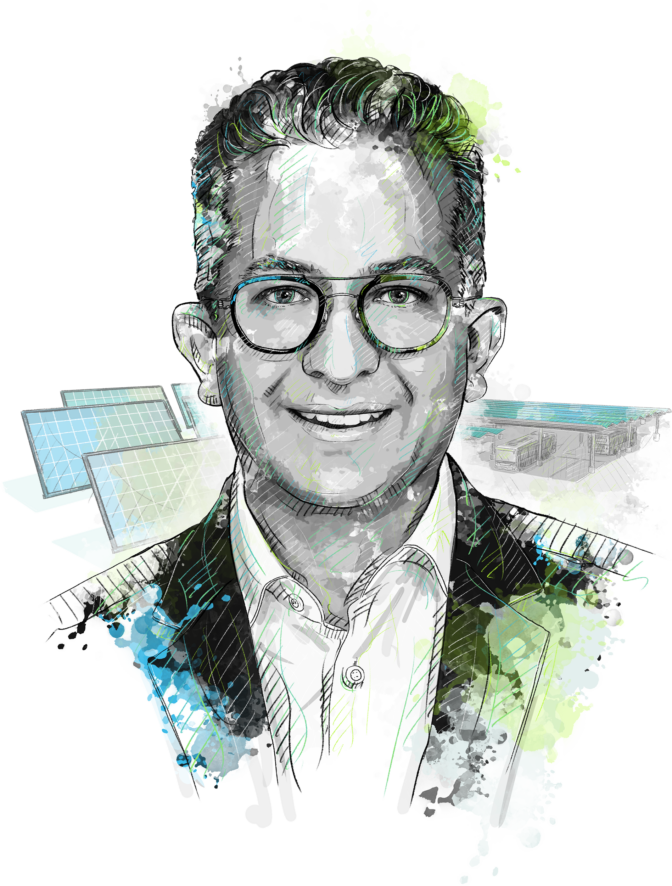
Juan Macias
CEO, AlphaStruxure- Industry: Energy
- HQ: Boston, Massachusetts
- Website: www.alphastruxure.com
The Microgrid Maestro
What if the key to sustainable energy adoption isn’t more technology, but rather more innovative business models?
Juan Macias, the CEO of AlphaStruxure, an Energy-as-a-Service venture that builds, owns, and maintains microgrids, is betting big on the business of tailored, self-contained systems to power our future.
Microgrids are decentralized local energy systems designed to operate both alongside and—in the case of outages—independent of larger power systems. They run on a variety of distributed energy resources, such as wind, solar, fuel cells, biomass, biogas, and batteries. While ongoing decarbonization efforts and increasing climate-related disasters have made microgrids an easier sell in recent years, the price tag, risk, and added operational complexity have limited widespread adoption.
The industry has done a lot of innovation around the technology, and now we’re innovating around how we deliver that technology to customers.
Macias led the development of dozens of microgrid pilot projects while working at global energy giant Schneider Electric, an AlphaStruxure parent company. He saw the same pattern time and again: Buyers would get excited by his pitch but couldn’t justify the costs. “We took a step back and realized that it wasn’t a technology issue. It was a business model issue,” Macias says.
AlphaStruxure’s services-based model is a game-changer, offering all the benefits of energy transformation without the associated costs and risks. “Those barriers of capital, risk, and complexity—we take all of that away,” Macias says. “The industry has done a lot of innovation around the technology, and now we’re innovating around how we deliver that technology to customers.”
His pitch resonates. AlphaStruxure is developing microgrid projects across North America with applications across industrial manufacturing, mining, transportation, consumer packaged goods, and life sciences. Macias is particularly excited about the company’s work in the medium and heavy-duty vehicle transition to zero-emission vehicles.
The company is also seeing momentum with local municipalities. In 2021, it announced a public-private partnership project with Montgomery County, Maryland, to develop energy and charging infrastructure for the county’s fleet of electric buses. When completed this October, the 6.5-megawatt microgrid will integrate solar photovoltaic canopies, onsite energy generation, battery storage, and electric bus chargers, giving the fleet critical resilience in the event of local outages.
The effort, which is part of the county’s larger 2035 sustainability goal to reduce greenhouse gas emissions by 100%, will eliminate an estimated 78,000 tons of carbon dioxide over the next 12 years alone. “This kind of commitment is a bold decision,” says Macias. “It requires having both foresight and the right kind of thinking to understand the impact this project will have.”


